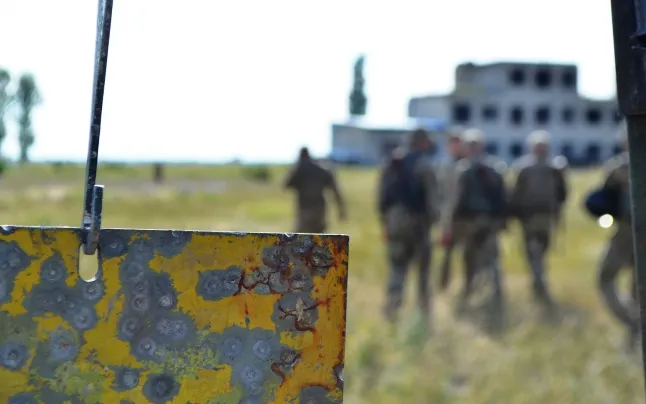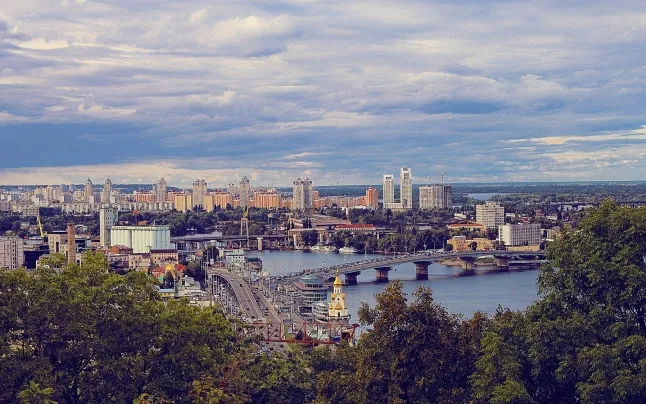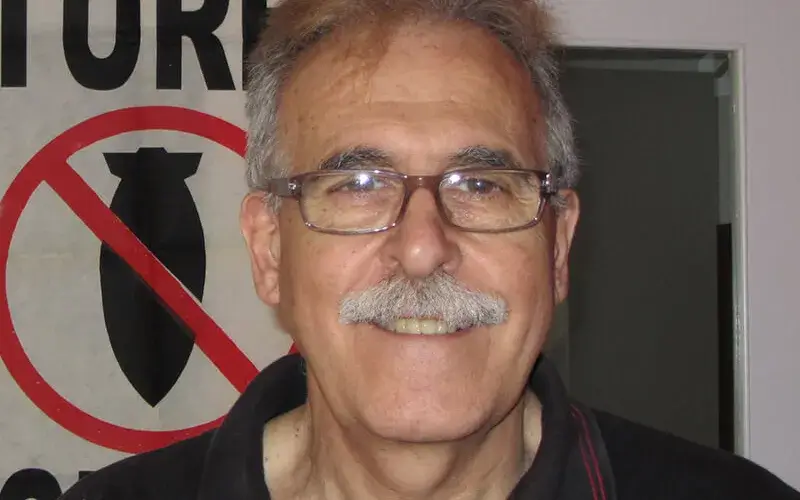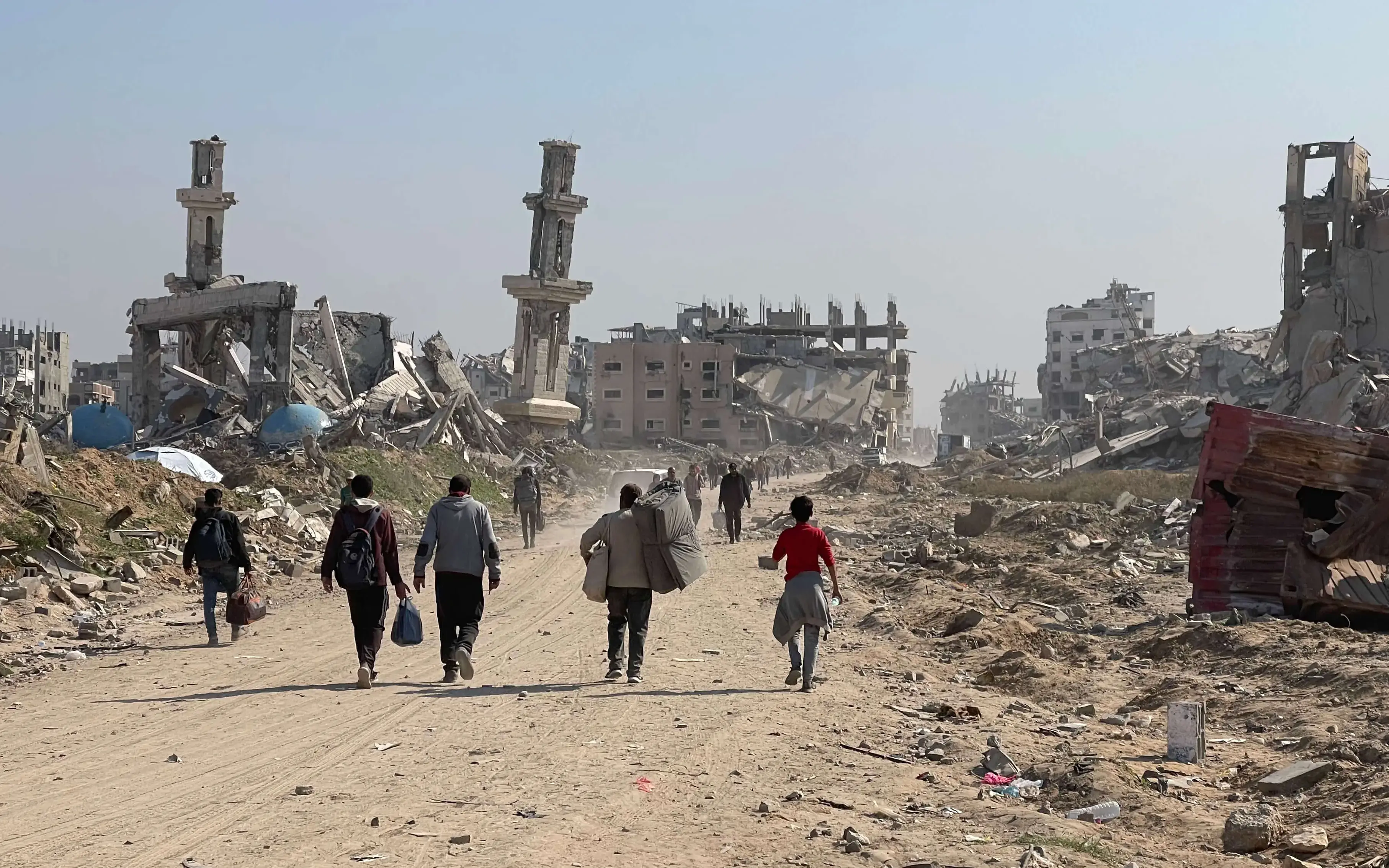ICIP Director Kristian Herbolzheimer and Delás Center Honorary President Pere Ortega reflect on the causes and consequences of the Russian military invasion of Ukraine.
The worst predictions have come true, and the scare of war is hovering over Europe again. On the morning of February 24, Russia launched a "special military operation" in the Ukrainian region of Donbass, with an influence which is difficult to know at this time. This was announced in a speech by Russian President Vladimir Putin, in which he assured that he is acting to "disarm and denazificate" Ukraine, while warning about the consequences "as never seen before" if a reaction from the West to the attacks occurs.
Shortly after the statement, Russian military forces bombed about a dozen Ukrainian cities, including Kiev, the capital, and several parts of the country, where heavy explosions were reported. The Russian offensive has been announced in eastern and southern Ukraine, but the reality is that we are facing a large-scale invasion. At the moment, thousands of people are trying to flee the country in panic and the situation is increasingly chaotic.
Ukrainian President Volodymyr Zelensky has reported attacks on military and civilian infrastructure, declared martial law nationwide and closed airspace. In a message to the nation, he said he would defend himself against the invasion: "The army is working. We are strong, we are ready for everything ”.
The Ukrainian Interior Ministry has confirmed that Russian troops have crossed the border into various parts of the country and are approaching the capital. The death toll from the fighting, which is being fought across the border, continues to grow. So far, at least 40 people have been killed.
Putin triggers the worst case scenario
Despite weeks of escalating tensions and veiled threats, few have expected such a strong gesture from Putin. The Russian president has been wreaking havoc since the Cold War, leading to a scenario of uncertain consequences. “Starting a war is a terrible gesture that has potentially catastrophic repercussions; whatever the scope of the aggression, it is a disaster in all respects”, Kristian Herbolzheimer, director of the International Catalan Institute for Peace (ICIP), told Xarxanet.
Putin insists his purpose is not to occupy all of Ukraine. The Kremlin leader claims that Ukraine's "Nazi regime" is committing "genocide" against the Russian community in the Donetsk and Lugansk regions of the Donbass, and that the operation seeks to "demilitarize" the neighboring country. “What does demilitarization mean? if it seeks to overthrow all Ukrainian military forces, it will have to invade and seize the country, ”said Pere Ortega, a researcher and honorary president of the Delás Center for Peace Studies. "The problem is that his word is no longer credible, and that makes diplomacy very difficult," Herbolzheimer added.
Ortega believes that the aim of the Moscow offensive is to annex the Russian-majority territories, as he did with Crimea in 2014, in that case via a referendum supported by the Russian military presence. That is, the Donbass and other territories bordering Ukraine. “The invasion he has launched doesn't make sense if there is no interest in annexing these territories; invading all of Ukraine are big words”, he added.
However, the war is already a real scenario. The Ukrainian president has ordered the army to "inflict as many casualties as possible on the invader" and called on the people to take up arms: "Anyone who is ready and able to hold a weapon can join the Territorial Defense Units in their region", he stated.
The response from the international community has not been long in coming. The European Union (EU) has condemned the attack without hesitation and has called an emergency meeting to redouble sanctions on Russia. NATO, for its part, has reaffirmed its readiness to respond to the aggression if necessary, and US President Joe Biden has stated that "Putin has started a war of catastrophic consequences".
A conflict that will have multiple consequences
The first answer announced is the imposition of severe economic sanctions on Russia. "Until now, they were weak and didn't affect the big Russian banks, for example, but now they will harden a lot," predicts the Delàs Center researcher. Germany has already announced that it is suspending the approval of the Nord Stream 2 gas pipeline, which was to transport gas from Russia.
"There is little more room than to openly denounce this unacceptable aggression and exert maximum economic and political pressure. The international community has few more non-military tools to respond to the situation," said Kristian Herbolzheimer.
Now, the consequences of the opening scenario are difficult to gauge. As always, the Ukrainian population, but also the Russian and European populations, will suffer the most. Them are facing a predictable economic crisis of great proportions.
According to Ortega, Russian-European interdependence means that both sides have a lot to lose: "The economic downturn will be severe in Russia and Europe, the issue of energy can lead to an increase in the cost of electricity, food, among others, and a sharp rise in prices; it will depend on the duration and magnitude of the conflict".
Ortega points out that the decline in Russia's energy supply in Europe could undoubtedly benefit Spain, which could be the gateway to gas from outside Russia, especially from Algeria, to the continent and in a sort of gas warehouse to distribute it to Europe.
In any case, the economic impact is the price of the pulse that the Russian president seems willing to pay. "Putin is playing with fire because he risks completely collapsing the Russian economy and condemning his country's population to a very precarious situation because of expansionist adventurism," said the ICIP president.
The diplomatic route, touched to death?
Beyond the humanitarian and economic drama of the war, the Russian movement is undermining confidence in international relations and undermining all diplomatic efforts and the path of dialogue to prevent conflict. For Herbolzheimer, the outbreak of the conflict "reinforces militaristic rhetoric and the idea of increasing arms spending and strengthening NATO".
Certainly, the diplomatic solution to the conflict seems more and more deadly. Pere Ortega is convinced that Germany and France, as the EU's leading nucleus, will make every effort to get back on track because they are aware that the consequences of an open war are "disastrous for all". He doesn't think the same of the US, which has interests that go beyond those of the European population and can emerge stronger from the situation, he said.
However, for Herbolzheimer, the diplomatic path can never be taken for granted because the alternative "is always worse, it's all or nothing, a victory or a total defeat." However, Putin's gesture calls into question the collective idea that was forged with milestones such as the creation of the United Nations, a space set up so that differences between countries could be discussed without resorting to violence. "It is clear that Putin has broken this international consensus, and the repercussions can go far beyond Ukraine," said the ICIP president.









Add new comment